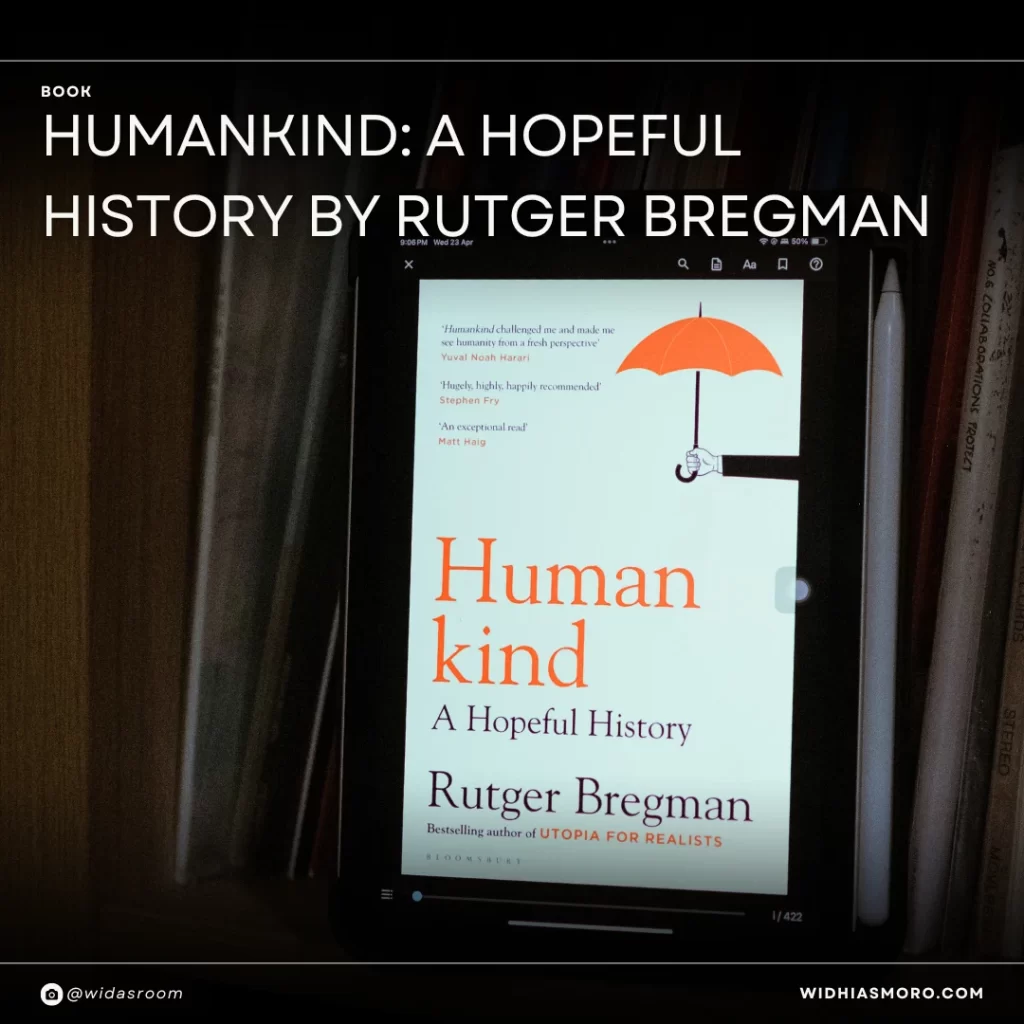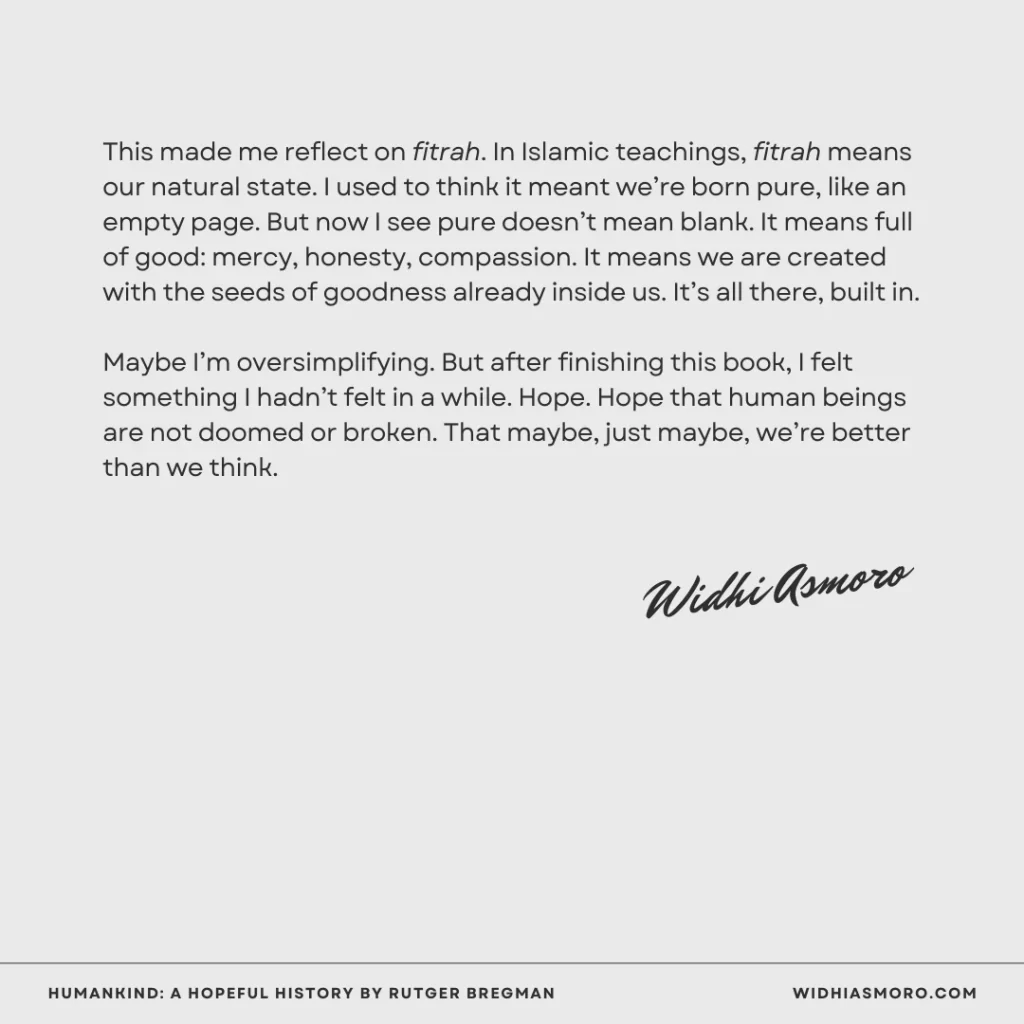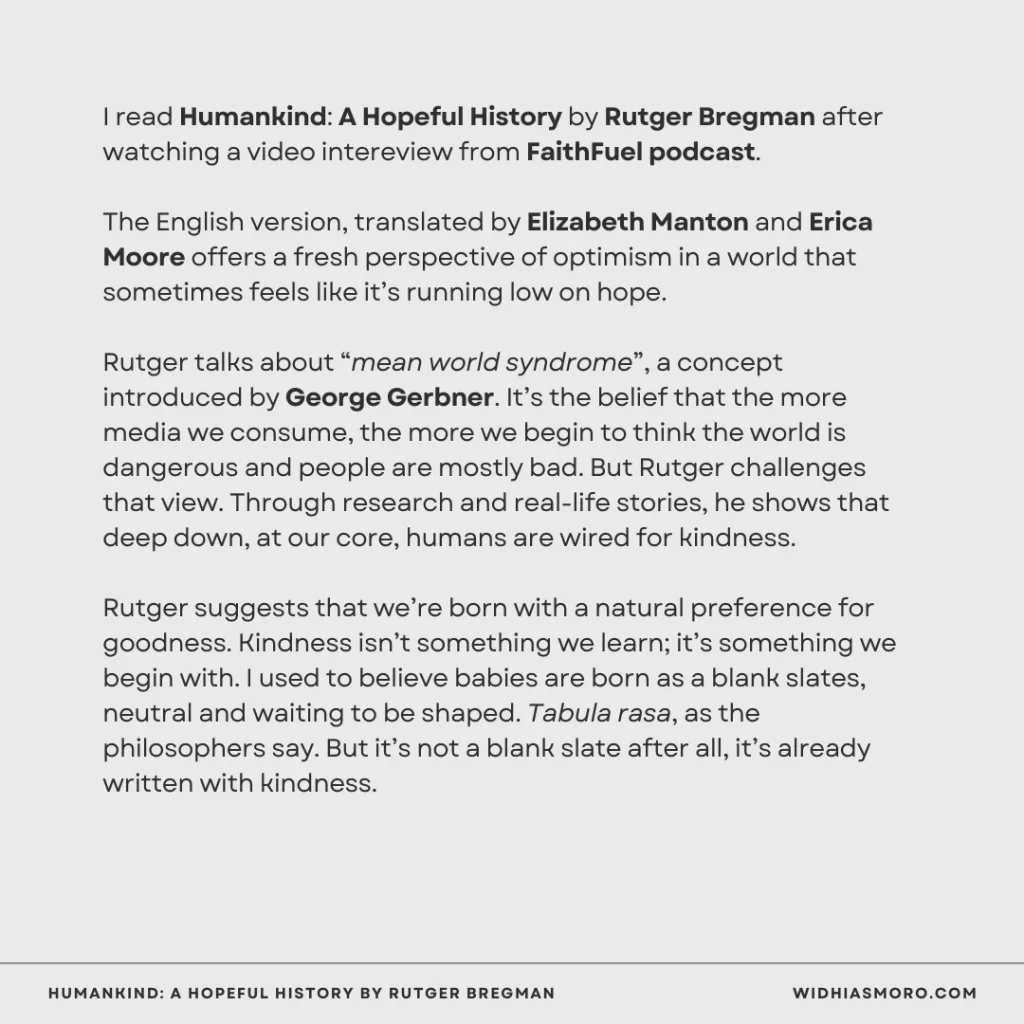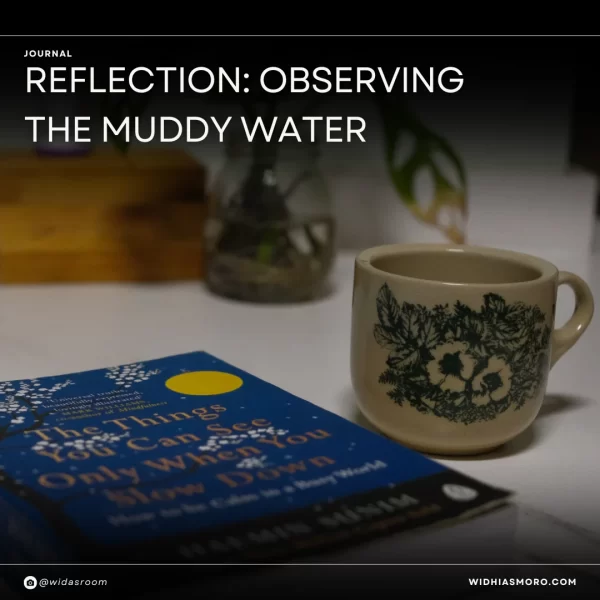I read Humankind: A Hopeful History by Rutger Bregman after watching a video interview from FaithFuel podcast.
The English version, translated by Elizabeth Manton and Erica Moore, offers a fresh perspective on optimism in a world that sometimes seems to be running low on hope.
Rutger talks about “mean world syndrome”, a concept introduced by George Gerbner. It’s the belief that the more media we consume, the more we begin to think the world is dangerous and people are mostly bad. But Rutger challenges that view. Through research and real-life stories, he shows that deep down, at our core, humans are wired for kindness.
Rutger suggests that we’re born with a natural preference for goodness. Kindness isn’t something we learn; it’s something we begin with. I used to believe babies are born as blank slates, neutral and waiting to be shaped. Tabula rasa, as the philosophers say. But it’s not a blank slate after all, it’s already written with kindness.
This made me reflect on fitrah. In Islamic teachings, fitrah means our natural state. I used to think it meant we’re born pure, like an empty page. But now I see pure doesn’t mean blank. It means full of good: mercy, honesty, compassion. It means we are created with the seeds of goodness already inside us. It’s all there, built in.
Maybe I’m oversimplifying. But after finishing this Humankind book, I felt something I hadn’t felt in a while. Hope. Hope that human beings are not doomed or broken. That maybe, just maybe, we’re better than we think.





